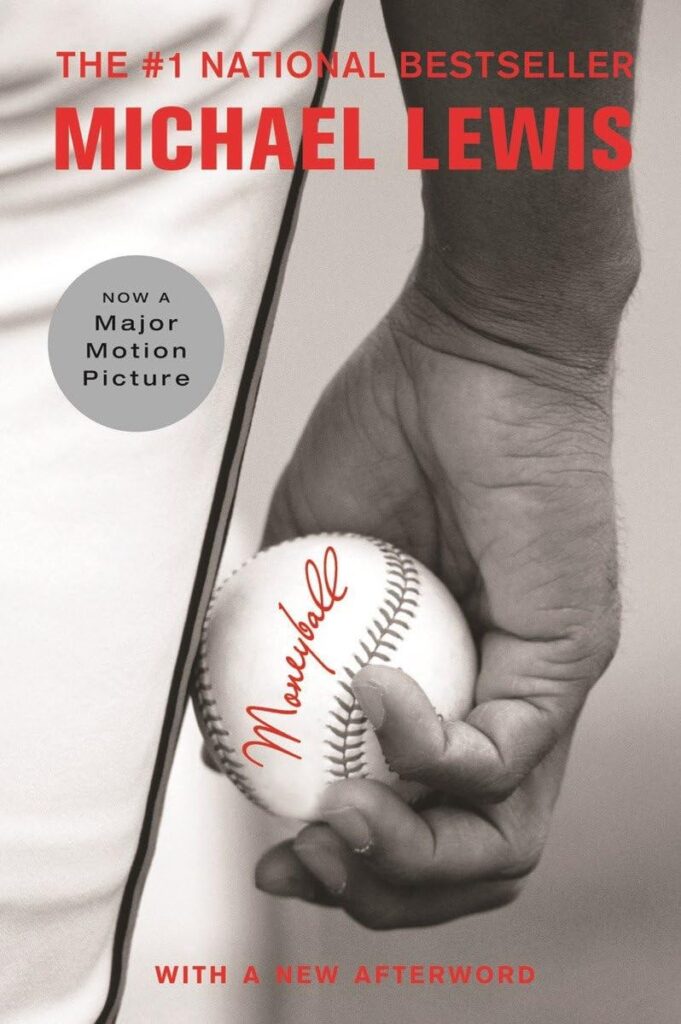When I first heard about Moneyball: The Art of Winning an Unfair Game by Michael Lewis, I was intrigued by the idea of applying data-driven decision-making to baseball—a sport traditionally ruled by intuition and experience. As someone who enjoys stories of unconventional thinking and underdog victories, this book seemed like a perfect fit. What I didn’t expect was how deeply it would challenge my understanding of success in sports and beyond.
1. The Unconventional Hero
The story centers around Billy Beane, the general manager of the Oakland Athletics. Beane was not your typical sports executive. Facing a tight budget and an uphill battle against teams with far more financial resources, he needed to find a way to compete. The traditional methods of scouting and evaluating players, which relied heavily on gut feelings and past performances, weren’t going to cut it.
Instead, Beane turned to a new, revolutionary approach: data analysis. The book introduces us to the world of sabermetrics, a statistical approach to evaluating baseball players that goes beyond traditional metrics like batting average and home runs. Through a process of rigorous analysis and data interpretation, Beane and his team at the A’s sought to identify undervalued players who could contribute significantly to the team’s success.

2. A New Way to Play the Game
One of the most fascinating aspects of Moneyball is how it unveils the clash between traditional scouting and data-driven decision-making. In the world of baseball, where intuition and “eye test” have always been paramount, Beane’s approach was nothing short of revolutionary. Instead of relying on outdated metrics and subjective evaluations, he used objective data to make decisions.
What struck me was how this approach wasn’t just about finding players who could hit home runs or throw fastballs. It was about understanding the actual value of various skills and how they contributed to winning games. For instance, on-base percentage and walks, which were often undervalued, became critical metrics in Beane’s strategy. This shift in perspective highlighted a broader lesson: success often comes from looking beyond the obvious and challenging established norms.
3. Overcoming Challenges
Beane’s journey was far from smooth. Implementing a data-driven approach in a sport deeply rooted in tradition was fraught with resistance. Many in the baseball world scoffed at his methods, clinging to their tried-and-true ways of evaluating talent. There were plenty of skeptics who believed that Beane’s strategy was a fluke, that it would never stand up to the rigors of a full season.
But Beane’s determination and the success of his approach eventually spoke louder than any criticism. Despite the initial skepticism, the Oakland A’s had a remarkable season, making it to the playoffs with a team that cost a fraction of what other teams spent. This success didn’t just prove the value of Beane’s approach—it forced a rethink of how talent could be evaluated and managed in sports.
4. Lessons Beyond Baseball
What I found particularly compelling was how Moneyball extends its lessons beyond the world of sports. The principles of data-driven decision-making and challenging conventional wisdom can be applied to many areas of life. Whether you’re running a business, managing a team, or even making personal decisions, the idea of using data to inform choices rather than relying solely on intuition is powerful.
Beane’s story is a testament to the idea that success isn’t always about having the most resources or following the established playbook. Sometimes, it’s about having the courage to think differently and the persistence to see a new strategy through. This book made me rethink how I approach problem-solving and decision-making in my own life.
Wrapping Up
As I look back on Moneyball, I realize it’s more than just a story about baseball. It’s a fascinating exploration of how innovation and data can reshape industries and challenge long-standing traditions. The tale of Billy Beane and the Oakland Athletics is a powerful reminder that success often comes from being willing to question the status quo and embrace new ways of thinking.
So, what about you? How do you approach decision-making in your own life? Do you rely on intuition, or are you open to using data and new perspectives to guide your choices?




